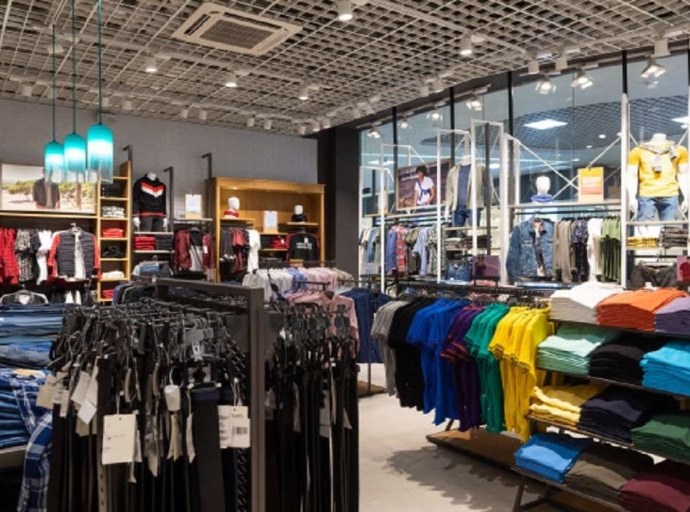India’s fashion landscape is shifting its epicenter beyond the metros. A growing middle class, increasing digital spread and an for style is boosting retail revolution in Tier II and III cities. This rise is creating a vibrant market for fashion and apparel, presenting unprecedented opportunities for brands across all segments.
The Indian apparel market is projected to reach $170 billion by 2030, growing at a CAGR of approximately 10 per cent. While metros still hold a significant share, Tier II and III cities are emerging as the fastest-growing segments.
As per reports by Technopak Advisors and Wazir Advisors the current market size in Tier II & III cities is estimated at around $40-50 billion. Statista and RedSeer Consulting reports suggest that by 2030 the market size of Tier II & III is expected to surpass $80-100 billion. The growth rate of Tier II, III cities as per CRISIL and ICRA reports will be 12-15 per cent, which is significantly higher than metro growth.
Table: Apparel market growth (estimates)
|
Category
|
Current size ($bn)
|
Projected size ($bn, 2030)
|
CAGR (%)
|
|
Overall India
|
100-110
|
170
|
10
|
|
Tier II & III
|
40-50
|
80-100
|
12-15
|
|
Metros
|
60-65
|
70-75
|
3-5
|
Growth triggers for smaller cities
The main reason for higher growth rates in smaller cities is changing consumer mindset. Consumers are becoming increasingly fashion-conscious, due to higher digital exposure. Social media platforms like Instagram and YouTube, coupled with the proliferation of smartphones, expose consumers to global trends. E-commerce platforms have also become a major source of shopping. It maybe noted that Internet penetration in rural India has increased from 12 per cent in 2015 to over 45 per cent in 2023 as per Telecom Regulatory Authority of India reports.
Another driver for smaller cities is rising disposable incomes and a desire for upward mobility are driving aspirational purchases. Consumers are willing to spend on quality and style. Regional influences too are at work as local festivals, cultural events, and regional celebrities play a significant role in shaping fashion preferences. However, although aspirational, consumers in Tier II and III cities are still price-sensitive. They seek a balance between quality and affordability.
Another growth catalyst is e-commerce expansion. Online platforms are bridging the gap between urban and rural markets, providing access to a wider range of brands. Influencers and social media campaigns too are shaping consumer perceptions and driving trends. Meanwhile, domestic and international brands are expanding their presence in smaller cities through physical stores and online channels.
Local brands have strong market hold
The apparel market is witnessing strong growth in both premium and value/affordable segments, though each is driven by different factors. The value and affordable apparel segment dominates the market, catering primarily to price-sensitive consumers. Local brands and unorganized retailers hold a significant share, with affordability, durability, and basic functionality being key drivers of demand. A notable example is V-Mart, a value retail chain that has successfully expanded into Tier II and III markets by offering budget-friendly apparel and household goods. Their strategic store placements and focus on local consumer preferences have been instrumental in their success.
On the other hand, the premium apparel segment is experiencing rising demand, due to increasing disposable incomes and aspirational spending. Both national and international brands are expanding their presence in India, offering a broader range of premium options. Factors such as brand awareness, quality, and exclusivity drive this segment’s growth. Reports from consulting firms like McKinsey & Company and Bain & Company indicate that the premium apparel segment in Tier II and III cities has grown at a CAGR of 18-20 per cent over the past three years, highlighting the growing appetite for high-end fashion beyond metropolitan areas.
Menswear growing as womenswear lead
Within the apparel sector, menswear is witnessing strong growth, particularly in casual wear and athleisure, as more men embrace branded and trendy styles. This shift is largely driven by an increasing male working population and greater exposure to global fashion trends. Womenswear remains the largest segment, spanning diverse categories such as ethnic wear, western wear, and lingerie. The rising number of working women and greater exposure to fashion trends have significantly boosted demand for stylish and trendy clothing. Kids' wear, too, is emerging as a rapidly growing segment, with increasing parental spending on comfortable, durable, and fashionable clothing. Social media and heightened parental awareness of children’s fashion further accelerate growth in this category.
Denims continue to be a popular choice across demographics due to their versatility and durability. The rising demand for branded denim and trendy styles is driven by the growing youth population and the influence of western fashion. Similarly, ethnic wear remains a significant part of the Indian apparel market, thriving on cultural events, festivals, and a deep-rooted traditional identity. The increasing preference for designer ethnic wear has further pushed up growth in this segment.
Retail growth is being driven by both offline and online channels. Despite the rise in e-commerce, offline retail remains crucial, particularly in Tier II and III cities, where physical stores offer a tangible shopping experience and build consumer trust. The expansion of organized retail chains, the opening of malls, and the increasing penetration of franchise stores have all contributed to the steady growth of offline retail, which is estimated to be expanding at an annual rate of 8-10 per cent in smaller cities.
At the same time, online retail is experiencing exponential growth, with e-commerce platforms gaining traction in non-metro areas due to rising internet penetration and smartphone adoption. Online platforms provide a vast selection of products at competitive prices, along with convenient delivery options. Online retail in Tier II and III cities is estimated to be growing at 25-30 per cent annually, significantly outpacing the national average. This surge is driven by factors such as affordable data plans, improved logistics, and the availability of regional language interfaces on e-commerce platforms, making online shopping more accessible to a wider consumer base.
Overall, both premium and value apparel segments are flourishing, driven by unique consumer behaviors and evolving market dynamics across various categories and retail formats.





































